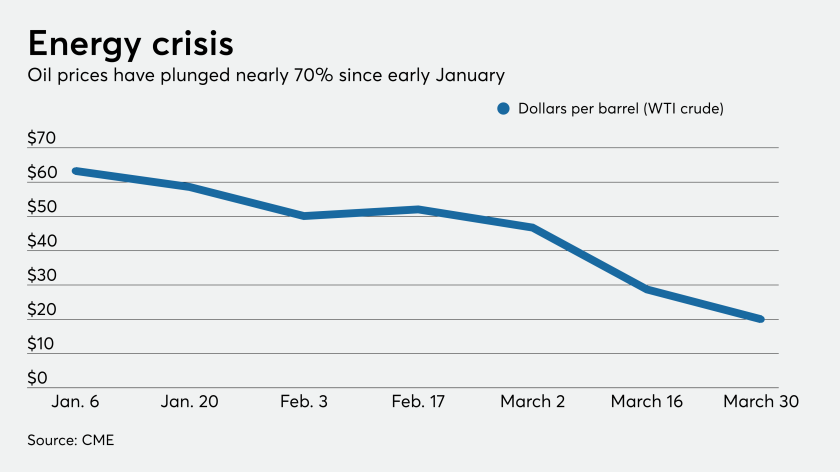Yes, the Small Business Administration's emergency funding program for the coronavirus crisis is off to a rocky start, but that shouldn't stop banks from helping customers in need.
Regulators point to traditional financial institutions as well-positioned to meet short-term credit needs during the coronavirus pandemic, but there are still a host of questions about whether the industry should try to compete with high-cost lenders.
Lenders can offer deferred payments and capitalize on digital banking to help small businesses and consumers get back on their feet.
Lenders and government guarantors can use loan technology to bring immediate relief to business owners, former OCC official Jo Ann Barefoot says.
Weak demand for oil and gas, brought on by the economic fallout of the coronavirus outbreak, has raised concerns of energy firms missing loan payments or even going bankrupt. Here’s how banks and regulators are trying to get ahead of potential problems.
The 2008 package proved some banks were too big to fail. But the rushed $2.2 billion stimulus shows now any company can be bailed out.
CEO Brian Moynihan also said in an interview that the bank is helping clients affected by the coronavirus pandemic through increased commercial lending to companies and expanded forbearance for Main Street customers.
The U.S. government will shortly funnel trillions of dollars into the economy to soften the coronavirus’ impact on a variety of industries and small businesses. Payment companies that are also lenders will soon find out if it’s enough to save the market.
Online lenders can help the agency distribute loans faster as it gets set to deploy emergency funding to small businesses.
No online lenders are approved for the agency's traditional programs, but they could make loans under the COVID-19 stimulus package if they get special approval.


















